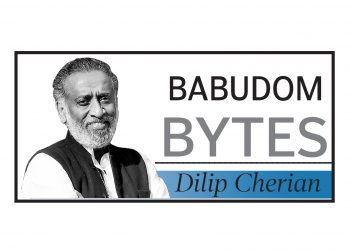Last year, Arvind Panagariya, former vice-chief of the NITI Aayog, wrote in his book “India Unlimited – Reclaiming the Lost Glory” that Indian babus suffered from the socialist hangover, which has slowed down the pace of reforms the Modi sarkar wishes to introduce. To support his view, he cited Modi’s initiative for lateral entry at the top levels of the bureaucracy. According to Panagariya, babus slowed down the process to the extent that at the very end of his term only nine officers could be inducted from outside.
But the government has not given up, yet. It is making another push to induct 30 more private sector specialists into different government departments at the crucial decision-making level of joint secretaries and directors on a contract basis. The Union Public Service Commission (UPSC) will shortlist the candidates for interviews.
Prime Minister Narendra Modi has introduced the mechanism of recruiting fresh talent in the bureaucracy from the private sector during his first tenure. But the first round hasn’t been the success that the government was expecting. It could recruit only nine of the 10 domain experts it had selected, and one of them, Arun Goyal, who had joined the Commerce Ministry as joint secretary, put in his papers barely a year later. It appears that far from changing the system, the lateral entrants are more likely to be subsumed by it. Further, a year after their appointment, the Central Administrative Tribunal (CAT) had issued a notice to the UPSC after a petition from whistleblower Indian Forest Service (IFoS) officer Sanjiv Chaturvedi alleging irregularities in the recruitment of three of the nine lateral entrants by the government.
The government is catching flak already. Some Opposition leaders are calling for the policy to be withdrawn. Bhim Army chief Chandrashekhar Azad has threatened to ‘gherao’ Parliament, calling the government’s move a violation of constitutional rights. Rashtriya Janata Dal leader Tejaswi Yadav has said that UPSC’s lateral recruitment an injustice to the youth.
Will the Modi sarkar overcome the political resistance from outside and from the babus within who may try to defend their turf?
Kerala ignores SC order on babus’ tenures
Though the Supreme Court fixed two-year tenure for babus back in 2013, few states have complied with the directive. Most other states are clearly unwilling to cede this leverage over bureaucrats. Even in states where Civil Services Boards were set up, by the order of the Apex Court, netas always seem to find ways to go around the directive to achieve their political ends. Even Kerala often held up as an example of progressive governance, has snubbed the SC’s ruling.
Official data reveals that the average tenure of secretary-rank officers in “God’s Own Country” from 2014 until 2018 was 11 months and has reportedly dipped further since then. Until last December, Kerala had only 34 officers of secretary and principal secretary rank holding 72 posts! 16 principal secretaries are holding 31 posts, of which 27 are cadre posts. Similarly, 18 secretary-rank IAS officers are looking after 41 posts!
Sources say that some officers, including principal secretaries KR Jyothilal and Rani George, are discharging three responsibilities, and Secretary Tinku Biswal is managing four posts!
This data came to light as poll preparations begin for the Assembly elections due in May this year. But while this flies against the idea of good governance, it is unlikely to matter to voters at the hustings, which may explain why governments continue to defy the Apex Court’s order.
Share a babu experience! Follow [email protected] . Let’s multiply the effect.






































